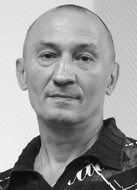Dependence of psychophysiological indicators students from their motor conditions
Фотографии:
ˑ:
PhD, Associate Professor I.V. Nikishin1
PhD, Associate Professor P.V. Galochkin1
PhD, Associate Professor A.E. Matveyev1
PhD, Associate Professor A.V. Shvetsov1
1Financial University under the Government of the Russian Federation, Moscow
The study was designed to profile the key psychophysical performance rates versus the physical activity rates in students by a set of physical workload tests. The psychophysical performance was rated by computerized PFK-01 Test System that objectively tests the nervous system performance by a variety of quantitative rating criteria to produce the test data arrays. The test set included the Simple Sensorimotor Response and Complex Sensorimotor Response Tests to obtain the latent and active response times; and the Tapping Test to rate the maximum physical actions per time interval and endurance of the nervous processes. The study data showed that the active physical training and sport practices were of positive effect on the students’ psychophysical performance rates, with some rates found dominated by the conservative and labile responses.
Keywords: students, psychophysical qualities, physical activity.
References
1. Izaak S.I. Realizatsiya Ukaza Prezidenta Rossiyskoy Federatsii «O Vserossiyskom fizkulturno-sportivnom komplekse “Gotov k trudu i oborone”» (GTO) [Implementation of the RF Presidential Decree "On Russian Physical Culture and Sports GTO Complex 'Ready for Labour and Defence']. Sport: ekonomika, pravo, upravlenie. Moscow, 2015, no. 2, pp. 12-14.
2. Izaak S.I. Razvitie studencheskogo sporta v Rossii [Development of university sport in Russia]. Chelovecheskiy kapital, 2016, no. 5 (89), pp. 43-45.
3. Izaak S.I., Volodkovich S.L. Aktualnyeproblemysokhraneniyazdorovya studencheskoy molodezhi v Rossii i Belorussii [Actual problems of students' health preservation in Russia and Belarus]. Chelovecheskiy kapital, 2016, no. 5 (89), pp. 8-10.
4. Kazantinova G.M., Charova T.A., Andryushchenko L.B. Fizicheskaya kultura studenta. Uchebnik [Academic Physical Education]. Volgograd, 2017.
5. Nikishin I.V. Neobkhodimost ucheta individualnykh osobennostey v fizicheskom vospitanii studentov [Need to take into account individual characteristics in academic physical education]. Nauka-2020, 2016, no. 4 (10), pp. 54 -60.
6. Nikishin I.V., Simavskaya A.A., Burashov S.V. Fizicheskaya kultura v obrazovatelnom protsesse studencheskoy molodezhi [Physical education in students' learning process]. Sb. statey mezhdunar. konf. 'Nauchnye aspekty fizicheskoy kultury v vysshey shkole' [Col. works of international conf. 'Scientific aspects of physical education in higher insitutions]. Moscow, 2015, pp. 28-30.
7. Parshikova N.V., Izaak S.I. Razrabotka strategicheskogo prognoza razvitiya fizicheskoy kultury i massovogo sporta na period do 2030 goda [Development of a strategic forecast for development of physical culture and mass sports for the period until 2030]. Chelovecheskiy kapital, 2016, no. 4 (88), pp. 10-12.
8. Rodionov S.I. Vospitatelny potentsial fizicheskogo i sportivnogo obrazovaniya [Educational potential of physical and sports education]. Nauka-2020, 2016, no. 4 (10), pp. 189-194.
9. Andryushchenko L.B., Kondrakov G.B., Rostevanov A.G., Vnukova E.Y., Burov A Physical education department of university of economics: current situation and development prospects. Teoriya i praktika fiz. kultury, 2017, no. 9, P. 1.
10. Zaitseva N.A., Andryushchenko L.B. The introduction of innovative educational technologies in the personnel training process for sport and tourism industries through the application of professional standards International Journal of Environmental and Science Education, 2016, vol. 11. no. 17, pp. 9923-9930.




 Журнал "THEORY AND PRACTICE
Журнал "THEORY AND PRACTICE